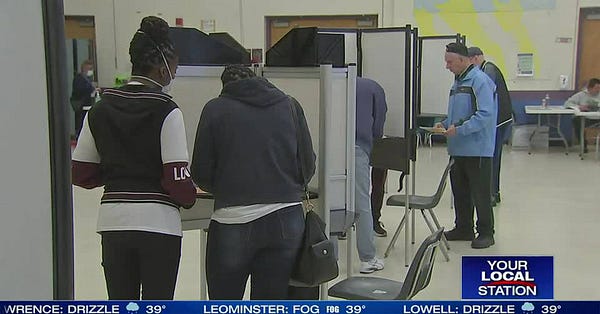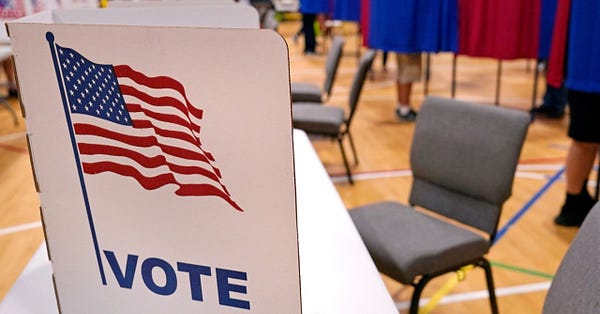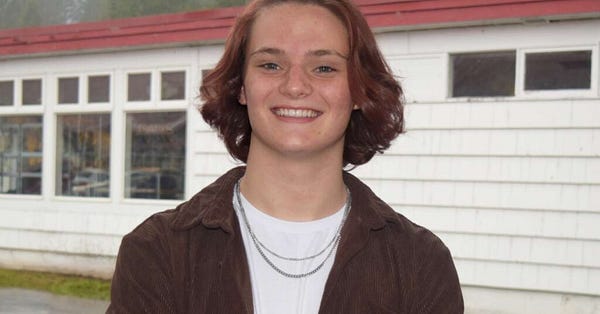Where is Vote 16 Legislation Moving in America in 2023?
Grassroots leaders are having success finding legislative champions for Vote 16 policies at all levels of government across the USA. But broad passage remains elusive without a broader base.
Local, state, and federal legislatures are all venues for voting age policy debates in the United States.
Vote 16 activists all across the country have had continued success finding legislative champions to introduce legislation to lower the voting age or enable local governments to do so.
Here’s where proposals are moving forward in 2023!
Municipal Vote 16 Efforts

The municipal level is where Vote 16 proposals have the greatest chance of passing right now. Proposals are currently moving forward in the following cities and towns.
Boston (MA)


Boston has passed a resolution requesting that the state of Massachusetts grant it the “home rule” petition it needs to lower the voting age for local Boston elections. This petition if passed by the state legislature would grant power to the Boston Election Commission to establish a “supplemental voter list” for 16 and 17 year old voters and “promulgate regulations, guidelines, and forms” related to lowering the voting age to 16. Boston has 37 times more people than Takoma Park, the largest municipality to lower the voting age so far in the United States. Given the challenges experienced by local election officials in other large jurisdictions that have considered lowering the voting age advocates may want to consider beginning to co-create more specific proposals with Boston Election Commission members for how Vote 16 would work in Boston even as the home rule petition is still being considered by the legislature.
Rockville (MD)

In Rockville, the charter review commission recommended that the city change its charter to lower the voting age to 16 for municipal elections. The commission cites research and resources from numerous Vote 16 Research Network Members including National Youth Rights Association, Fair Vote, and research from Daniel Hart and Robert Atkins showing 16 and 17 year olds are neurologically and socially mature enough to vote. The Rockville City Council had a hearing on the charter amendments earlier this month and will have another on February 27. They have not yet scheduled a vote or passed a resolution to send these proposals to the voters via public referendum.
Cheverly (MD)
The Cheverly Maryland Youth Commission presented a proposal to the Cheverly City Council to lower the voting age to 16 in the fall of 2022. Their proposal cited several studies by Vote 16 Research Network member Josh Douglas and included an extensive outreach campaign to get feedback on the proposal from stakeholders throughout Cheverly. The Cheverly City Council held a public hearing on the Cheverly Vote 16 proposal on January 25.
During that meeting Cheverly Youth Commission co-founder Zora Heneghan used the example of teens working at the Cheverly pool as an argument for the responsibility of 16 and 17 year old voters:
We’re allowed to work. I mean half the people you see here today work for the Cheverly pool. … You have literally put the lives of your children in their hands.
While the Vote 16 Research Network has studied how 16 and 17 year olds serving as poll workers affects public opinion about vote 16 policy, we have not yet studied arguments highlighting the role of 16 and 17 year olds as lifeguards. This is a compelling area for future public opinion research. Thank you Zora for your inspiring testimony!
No vote has been scheduled yet on the Vote 16 Cheverly Proposal but several members of the Cheverly City Council and Cheverly Mayor Kayce Munyene have expressed their support for lowering the voting age in local Cheverly elections.
Vote 16 in State Legislatures


New Mexico
Representative Christine Trujillo of Albuquerque again proposed a bill to lower the voting age to 16 for state elections in New Mexico. Here is the text of the bill:
As used in the Election Code and rules promulgated by the secretary of state, "qualified elector" means any resident of this state who is qualified to vote under the provisions of the constitution of New Mexico and the constitution of the United States and includes any resident who is at least sixteen years of age.
The proposal had significant support in committee gaining support from four of the nine members. It eventually failed, however, because of unified opposition from Republicans and opposition from Committee Chairwoman Rep. Doreen Wonda Johnson of Rehoboth.


Oregon
Devon Lawson-McCourt, a sophomore at the McKenzie River Community School in Blue River Oregon, has been leading a renewed effort to pass a constitutional amendment to lower the voting age to 16 in Oregon. This effort builds on a similar campaign in 2019 that was sponsored by Shemia Fagan who was a State Representative at the time and now serves as Secretary of State in Oregon. Lawson-McCourt has been successful in recruiting Representative Rob Nosse of Portland to sponsor a proposal to amend the Oregon constitution to lower the voting age to 16 for all state and local elections. Like many other Vote 16 legislative champions, Nosse has roots in student organizing as a past director of the Oregon Student Association and the Ohio Student Association. A vote has not yet been scheduled.


Virginia
Delegate Sam Rasoul of Roanoke has again introduced his proposal to amend the Virginia constitution to allow 16 year olds to vote in local municipal elections (but not in state elections as the OR and NM proposals suggest). Rasoul’s proposal has 12 cosponsors and has been referred to the committee on privileges and elections. We’ll keep you updated as it moves through the committee.
Massachusetts
Massachusetts has 341 cities and towns that run their own elections and has a strong base and legacy of grassroots support for lowering the voting age. A 2002 proposal to lower the voting age in Cambridge, MA passed by near unanimous margins and a similar proposal passed the Boston City Council with a strong 9 - 4 majority this fall (see above). Nine other cities in Massachusetts including Concord, Northampton, Brookline, and Somerville have all passed similar resolutions in recent years.
Massachusetts law, however, requires cities and towns to submit and pass a “home rule petition” through the state legislature and get it signed by the governor before they can lower the voting age to 16 for local elections. There are two proposals currently before the Massachusetts legislature to do this. Senator Rebecca Rausch has reintroduced the EMPOWER Act (An Act to Ensure Municipal Participation Of the WidEst possible Range) to lower the voting age to 16 for all municipal elections in Massachusetts by inserting the following language in the Massachusetts General Code.
Section 1G. Every citizen 16 or 17 years of age who is a resident in the city or town where they claim the right to vote at the time they register and who has complied with the requirements of this chapter shall have their name entered on the list of voters in a city or town accepting this section in the manner provided in section 4 of chapter 4 and may vote therein in any election for officers in such city or town.
Senator Elizabeth Miranda has also introduced a bill specifically granting the city of Boston the right to lower the voting age following the city council vote this fall.
Vote 16 in the US Congress


In the US House of Representatives, Congresswoman Grace Meng of New York reintroduced legislation to lower the voting age to 16 for all elections in the United States. Meng’s legislation would replace the 26th amendment to the US constitution with a new amendment that declares:
The right of citizens of the United States, who are sixteen years of age or older, to vote shall not be denied or abridged by the United States or by any State on account of age.
While this proposal is not close to gaining the extraordinary level of support necessary to amend the US Constitution, its reintroduction continues to establish that there is substantial support for lowering the voting age throughout the country. 125 Members of Congress - including more than half of all Democrats in the House of Representatives - supported a similar proposal in 2021. This year, there are 12 cosponsors for Congresswoman Meng’s legislation and the proposal has support from leading youth vote organizations including Generation Citizen, 18by vote, Rock the Vote, Fair Vote, and Voters of Tomorrow.
Fun fact: Congressman Earl Blumenauer - one of the co-sponsors of Meng’s bill - led a campaign to lower the voting age to 19 in Portland (it was still 21 at the time!) as a senior at Lewis and Clark University in 1970.
The Upshot
Legislative efforts all around the United States are underway to advance the movement to lower the voting age to 16. In several municipalities, these proposals could pass and enfranchise 16 and 17 year olds for local elections in the short term. At the state and federal level, Vote 16 legislative efforts continue to play an important role in popularizing the policy and demonstrating that is has a wide base of support. Many historic movements to expand the franchise in the United States brought bills and constitutional amendments to state legislatures and the US congress for years to grow support before eventually passing. Political science research in state politics shows that the work of proposing and advocating for legislation like this (even when it is unlikely to pass soon) is an essential part of movement building and an effective strategy for Vote 16 advocates to continue pursuing.
Sam Novey is a Community Scholar at the University of Maryland Center for Democracy and Civic Engagement and co-founder of the Vote 16 Research Network.


